Ctenanthe burle-marxii
Ctenanthe burle-marxii
Low stock: 3 left
Plant Name: Ctenanthe burle-marxii (commonly called Calathea or Maranta)
I personally produced these plants by dividing the tufts.
The plant comes with a plastic pot and high-quality, professional, draining substrate.
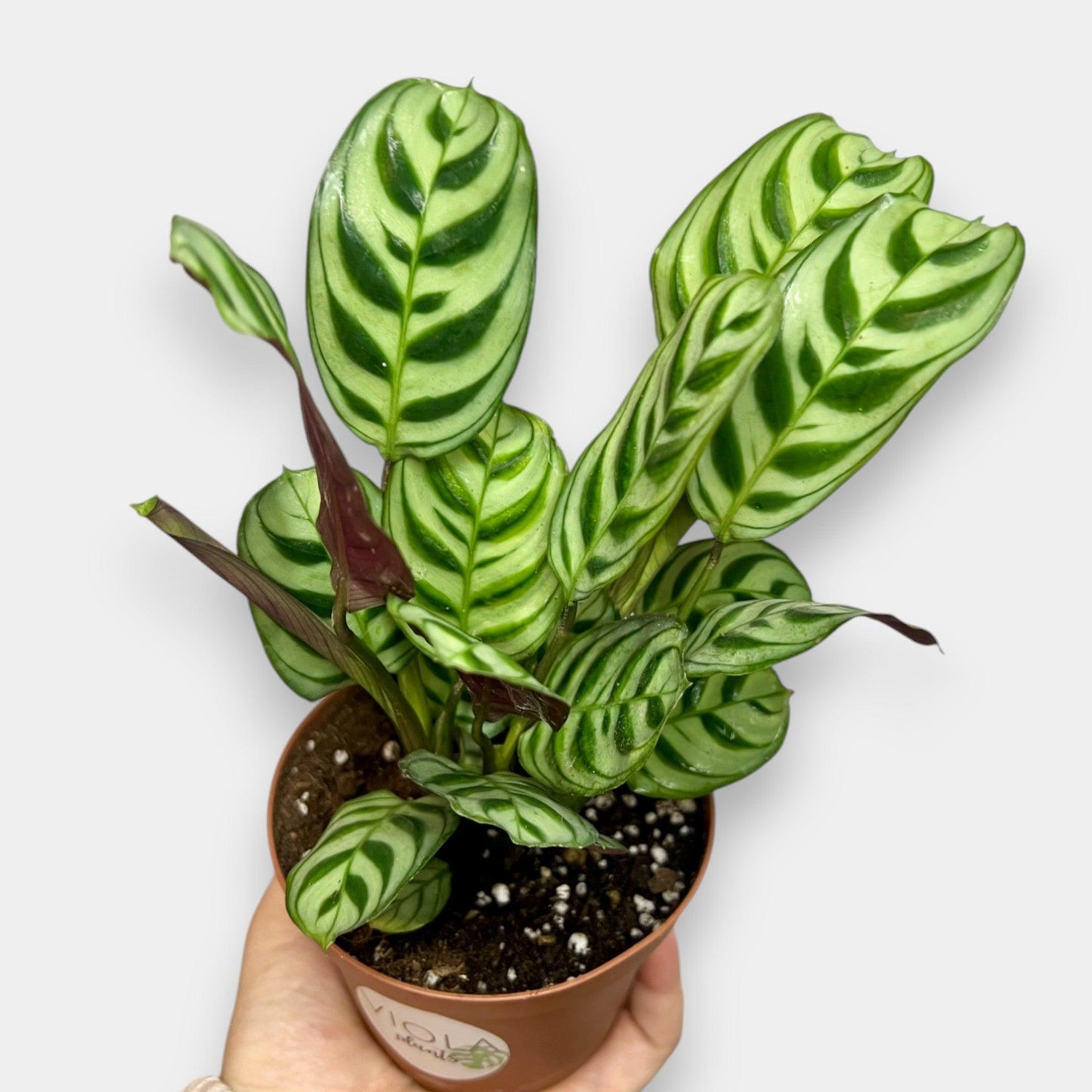
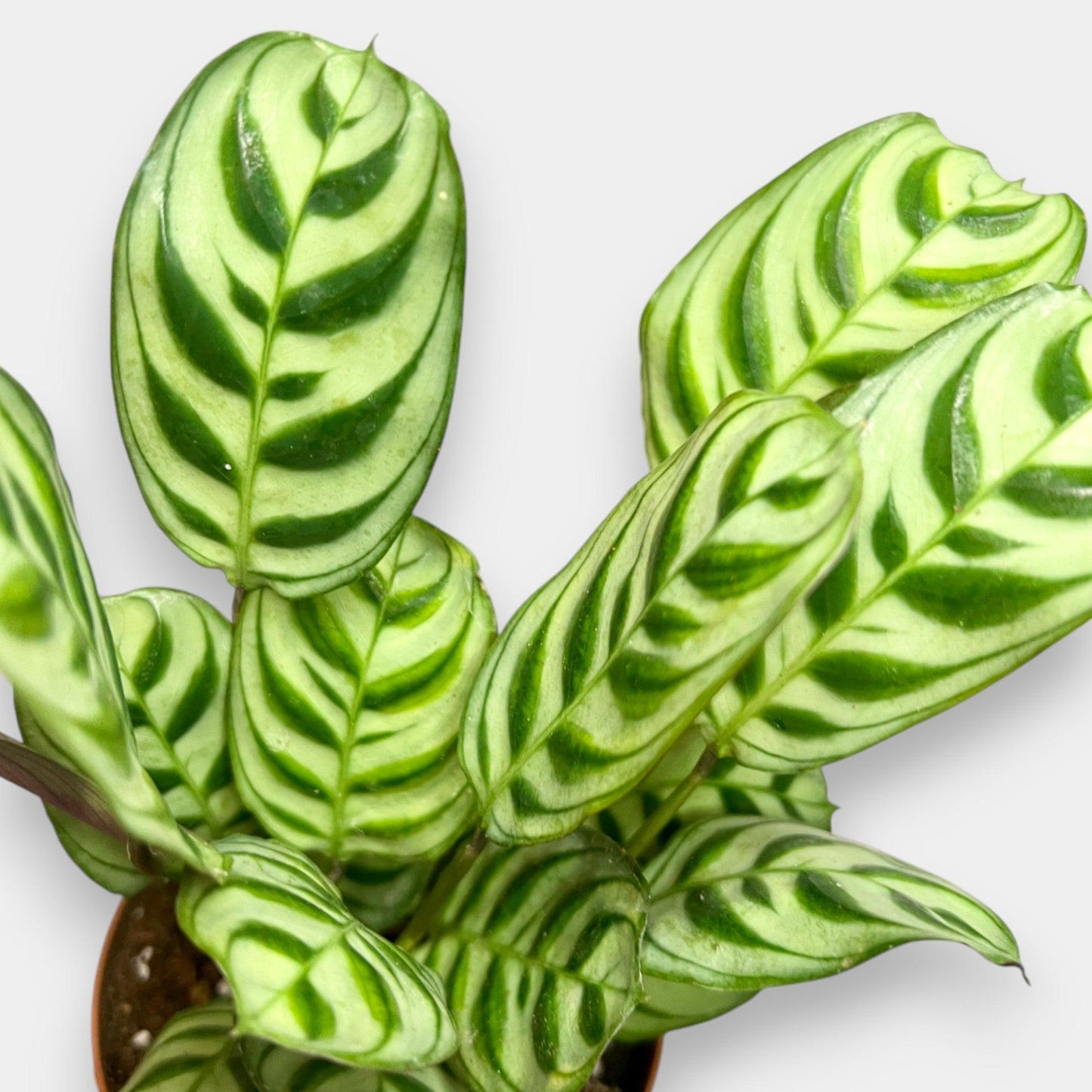
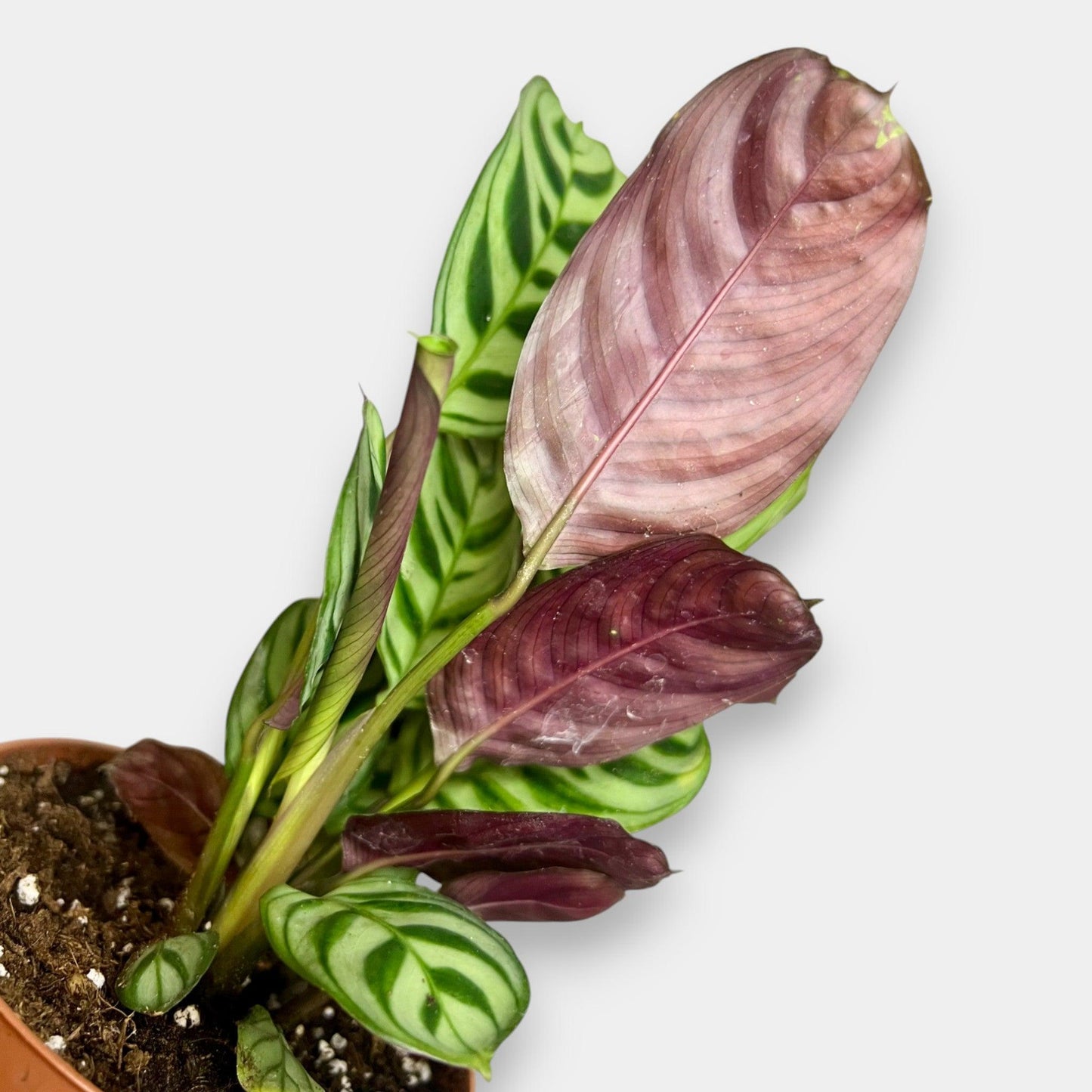
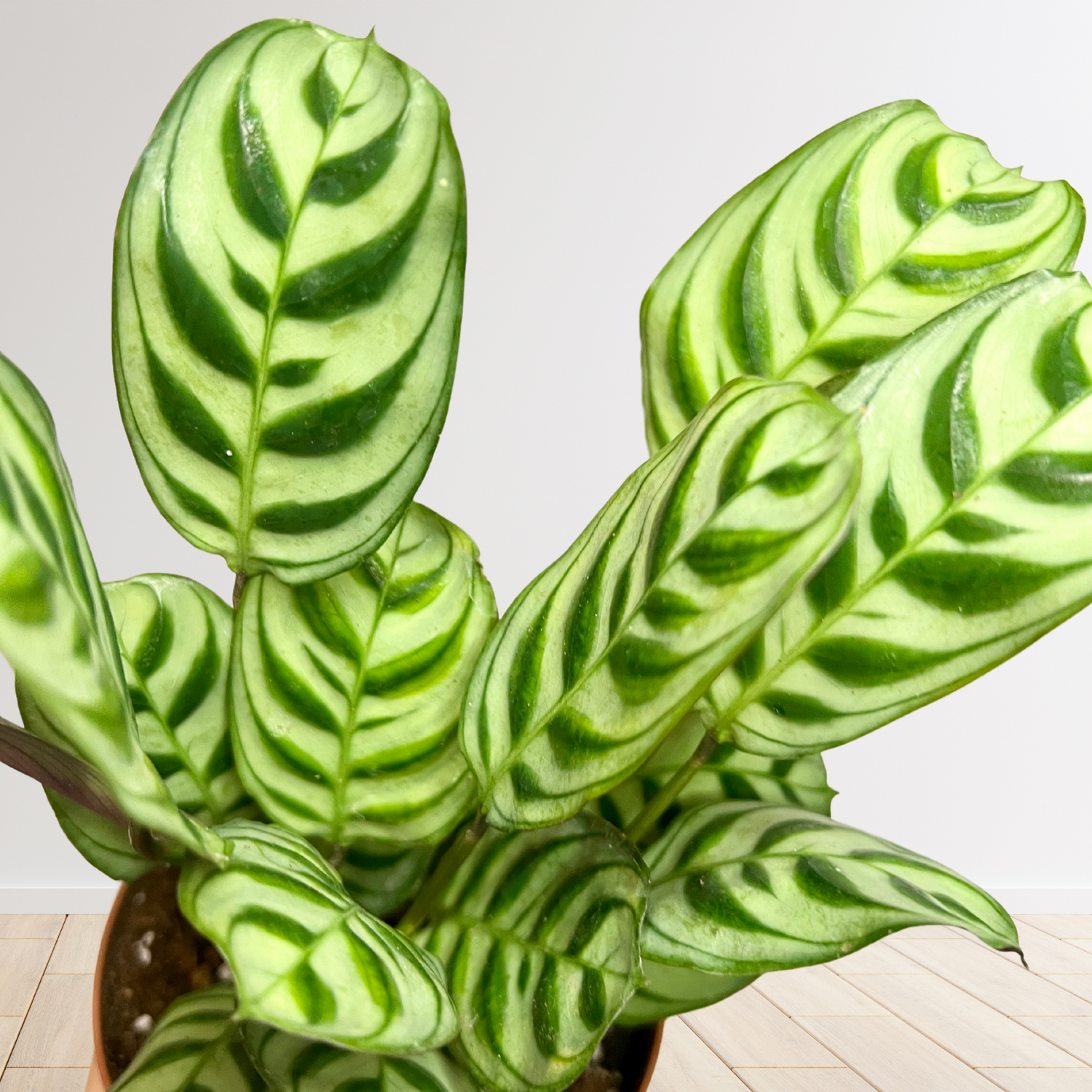
Ctenanthe burle-marxii is a tropical perennial plant, native to the rainforests of Brazil.
Special features: its particular designs and the dance of its leaves between night and day ( nyctinasty ).
SCROLL and open the curtains to read all the information on Ctenanthe burle-marxii .
About the plant🪴
Characteristics of the plant
Tropical plant that, outside of tropical or subtropical climates, must be grown indoors or in a heated greenhouse during the winter to best maintain its appearance.
Ctenanthe burle-marxii can still tolerate short periods of lower temperatures , but not below 10°C. If exposed to intense cold, the plant may suffer damage to the leaves, which will turn yellow or fall off.
Botanical information
Botanical name : Ctenanthe burle-marxii
Popular Name : Prayer Plant, Fish Leaf Plant, Calathea, Maranta
Family : Marantaceae
Climate : Tropical
Countries of origin : Rainforests of Brazil
Ease of growth : Suitable for growers with intermediate experience
Cultivation and care sheet
🌡️ Temperature :
- Ideal between 18-26°C (at these temperatures it always maintains its vegetation)
- Protect from cold and temperatures below 12°C
- It does not tolerate temperatures below 10°C ; intense cold can cause the leaves to fall
☀️ Light and positioning :
- Prefers bright indirect light
- Avoid direct exposure to sunlight to prevent sunburn on delicate leaves.
- Place in a room with east or west facing windows to ensure diffused light
💦 Watering :
- Water moderately and keep the soil slightly moist.
- Allow the soil to dry superficially between waterings.
- Avoid water stagnation which can cause root rot
😶🌫️ Humidity :
- It loves environments with high humidity, but also adapts to domestic humidity levels
- To improve humidity, mist regularly or place the plant near a humidifier.
🚜 Type of soil :
- Well-draining, light soil
- Preferably a tropical plant mix, with added perlite to improve drainage.
🪴 Type of vase :
- Pot with drainage holes to avoid water stagnation
- A plastic or terracotta pot is preferable
🚀 Fertilization :
- Fertilize during the growing season (spring and summer)
- Use a balanced liquid fertilizer every 4 weeks
🗒️ Other features :
- If grown in low humidity environments, it may present dry edges on the leaves. In this case, increase the surrounding humidity.
- Under optimal light and humidity conditions, this plant develops beautiful striped leaves that remain vigorous all year round.
Product information provided
Since plants are living beings, they may differ from the photos shown.
The plant is sold complete with professional, draining and high-quality substrate .
This means you don’t need to repot the plant until it has grown and needs a larger pot!
The transparency of the vase helps to monitor the growth and well-being of the roots and the humidity level of the soil.
Blog Posts
View all-
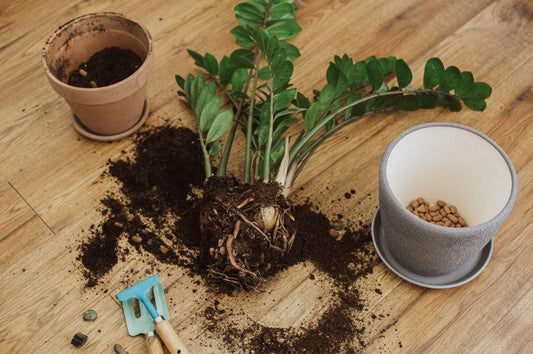
The importance of repotting purchased plants
You just bought a plant, what to do now? Buying a plant is always exciting, but did you know that to ensure it has a long and healthy life, it...
The importance of repotting purchased plants
You just bought a plant, what to do now? Buying a plant is always exciting, but did you know that to ensure it has a long and healthy life, it...
-
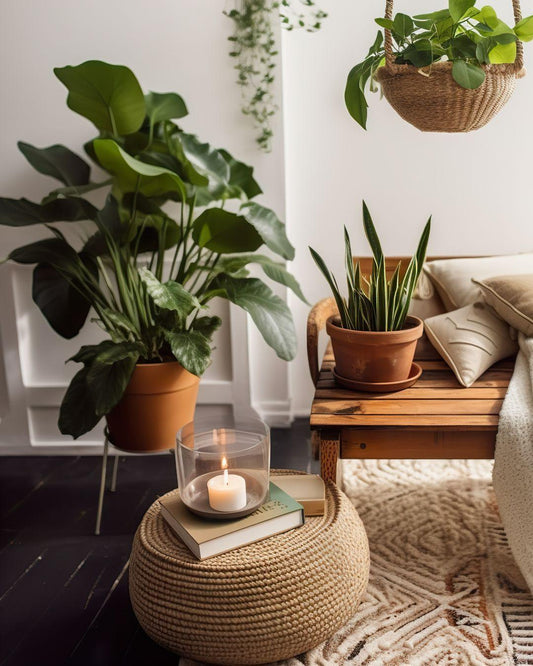
Do you know why your plants die?
Houseplants are more delicate than you think. Although they are called “houseplants,” they are actually tropical and subtropical plants that require conditions similar to their natural environments. If you've ever...
Do you know why your plants die?
Houseplants are more delicate than you think. Although they are called “houseplants,” they are actually tropical and subtropical plants that require conditions similar to their natural environments. If you've ever...
-
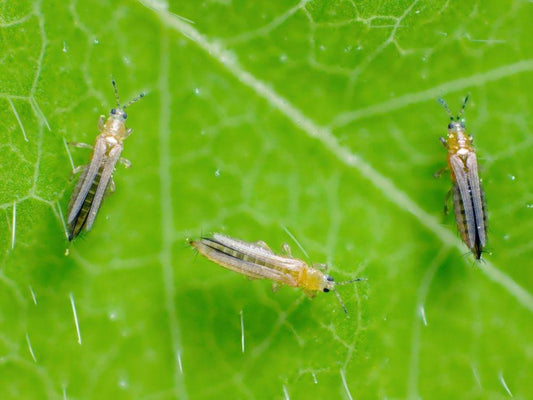
Thrips on houseplants
What they are and how to fight them Thrips can pose a significant threat to houseplants. Although they are not among the most common pests, they can become aggressive under...
Thrips on houseplants
What they are and how to fight them Thrips can pose a significant threat to houseplants. Although they are not among the most common pests, they can become aggressive under...






